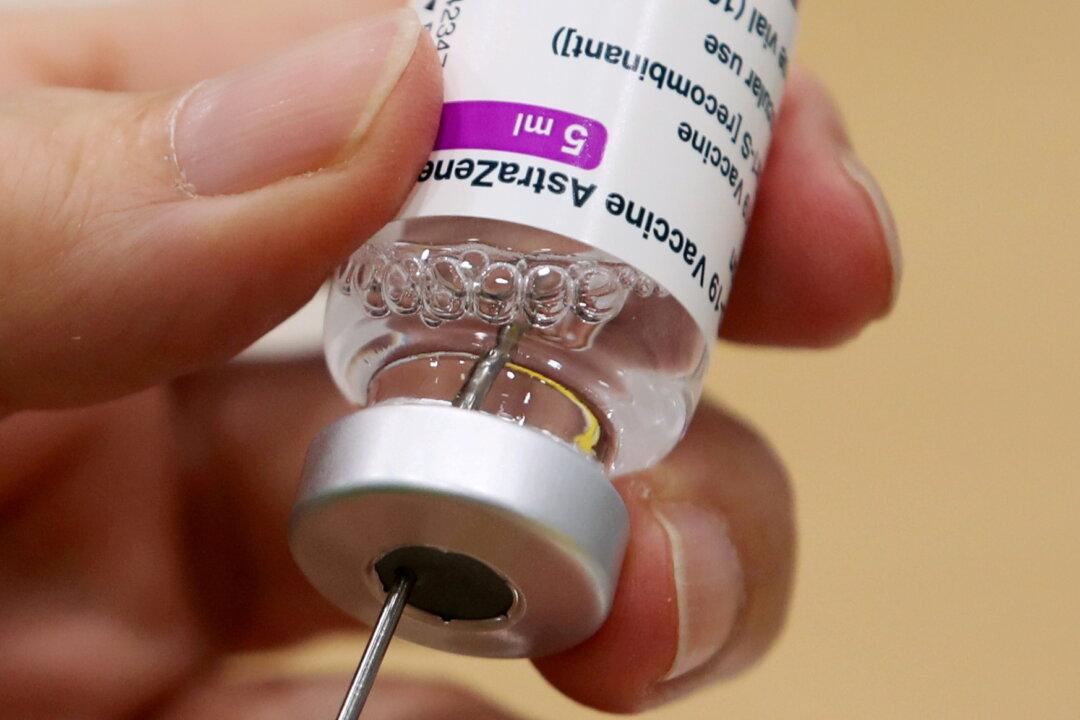The European Union’s drug regulator listed a rare nerve disorder known as Guillain-Barré syndrome (GBS) as a possible AstraZeneca COVID-19 vaccine side effect, according to the watchdog in a Wednesday update.
The European Medicines Agency (EMA) said the AstraZeneca shot, known as Vaxzevria, was associated with 833 GBS cases as of July 31. That’s out of 592 million doses administered, the EMA said (pdf).





